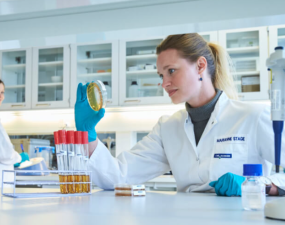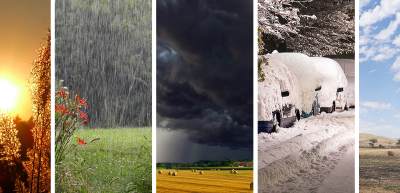World Environment Day, celebrated annually on June 5th, reflects the global understanding and attitudes of people towards environmental issues and expresses humanity's yearning and pursuit for a better environment. It is also one of the United Nations' primary means of promoting global environmental awareness, raising awareness of environmental issues, and leading to action.
Since the 1960s, global environmental pollution and ecological damage have become increasingly serious, and environmental issues and protection have gradually attracted international attention. On June 5, 1972, the United Nations held the first Conference on the Human Environment in Stockholm, Sweden.
Caring for the environment starts with small things.
- Green travel and reducing emissions
Try to choose public transportation, bicycles, or walking for daily commutes. Spending more time outdoors cycling, walking, and other activities not only exercises and relaxes the body, but also reduces energy consumption.
- Turn off lights and save electricity
When you're out, turn off most household appliances. Many appliances, such as televisions and computers, are in "standby" mode, but they don't actually save energy. If they are not needed for a short period (less than half an hour), they should be turned off completely.
When at home, arrange indoor lighting to maximize the use of natural light. Turn off lights promptly when not needed to protect eyesight and conserve energy.
- Use paper wisely and avoid waste.
When choosing paper towels, opt for bamboo pulp tissues, as this significantly reduces tree felling. For regular printing, print double-sided when printing documents; used paper can also be reused on the reverse side.
Why protect nature?
Humans live in the natural environment, which is essential for human survival. Without the vast natural environment of Earth, human survival and reproduction would be impossible. However, many resources are dwindling and facing the risk of depletion. Soil erosion and desertification are becoming increasingly serious, posing a serious threat to food production and human health. Therefore, only by protecting the environment can we maintain ecological balance and promote social development.
- Protecting the environment improves quality of life.
Environmental protection involves applying the theories and methods of environmental science to better utilize natural resources while gaining a deeper understanding of the root causes and harms of pollution and environmental damage. This involves systematically protecting the environment, preventing environmental degradation, controlling pollution, promoting the coordinated development of humanity and the environment, improving the quality of life, protecting human health, and benefiting future generations.
- Environmental protection is key to sustainable development.
Environmental protection is essential for sustainable development in the human world. The natural environment is humanity's home, and the resources needed for human survival and development all depend on nature. From material needs like food, clothing, shelter, and transportation to spiritual and cultural needs, all are inseparable from the gifts of the natural environment. Once the environment is damaged, human quality of life will inevitably be affected, and hunger, disease, and natural disasters will follow.
- Environmental protection is about learning lessons.
Humanity's failure to protect the environment has been a lesson for a long time. The ancient Yellow River Basin, the birthplace of ancient Chinese civilization, suffered from excessive deforestation and severe water loss, resulting in frequent floods and droughts and increasingly barren land. Therefore, we must learn from these lessons, inherit the ancient philosophy of environmental protection, and rationally utilize resources to ensure their sustainable use.





